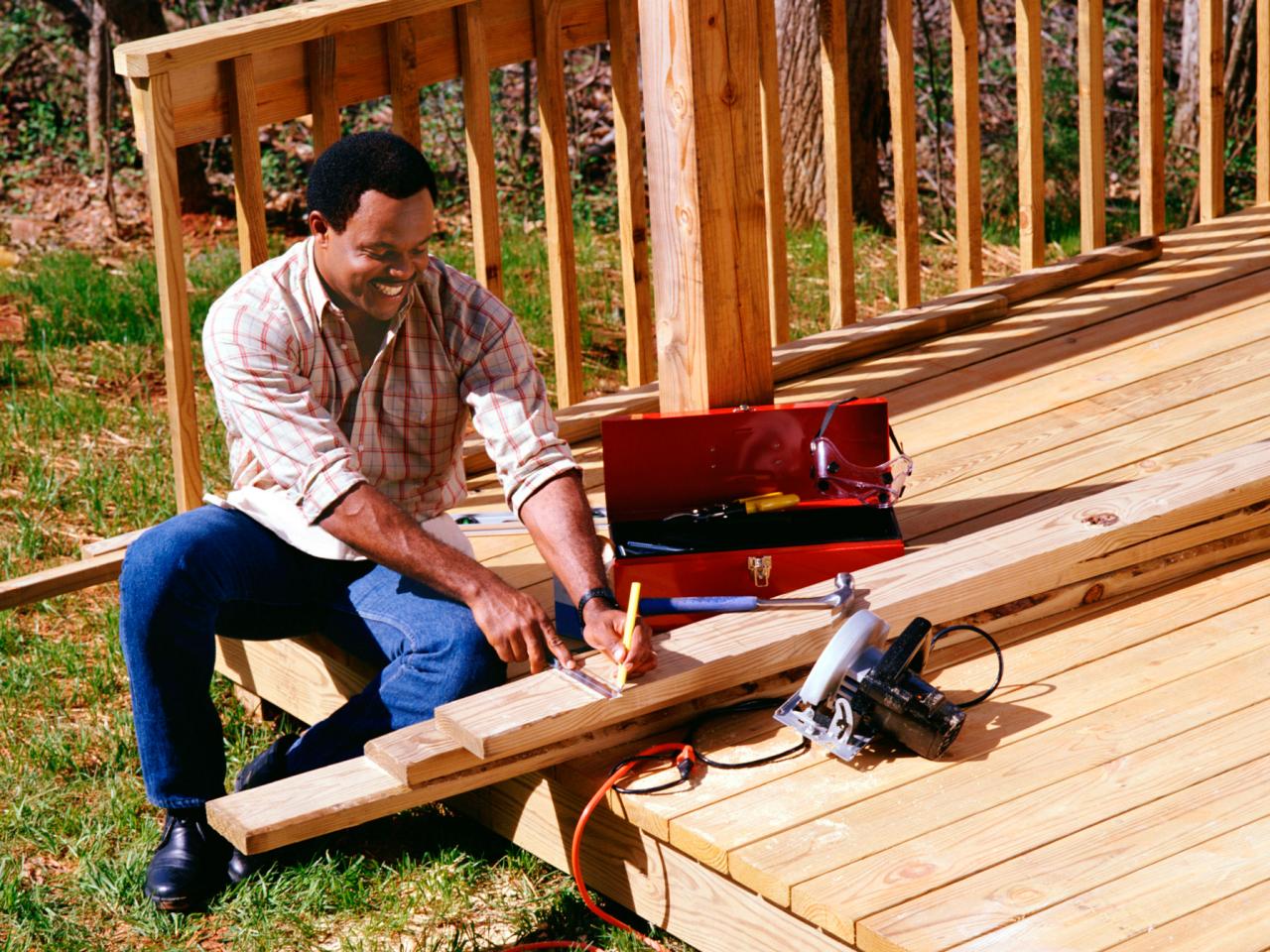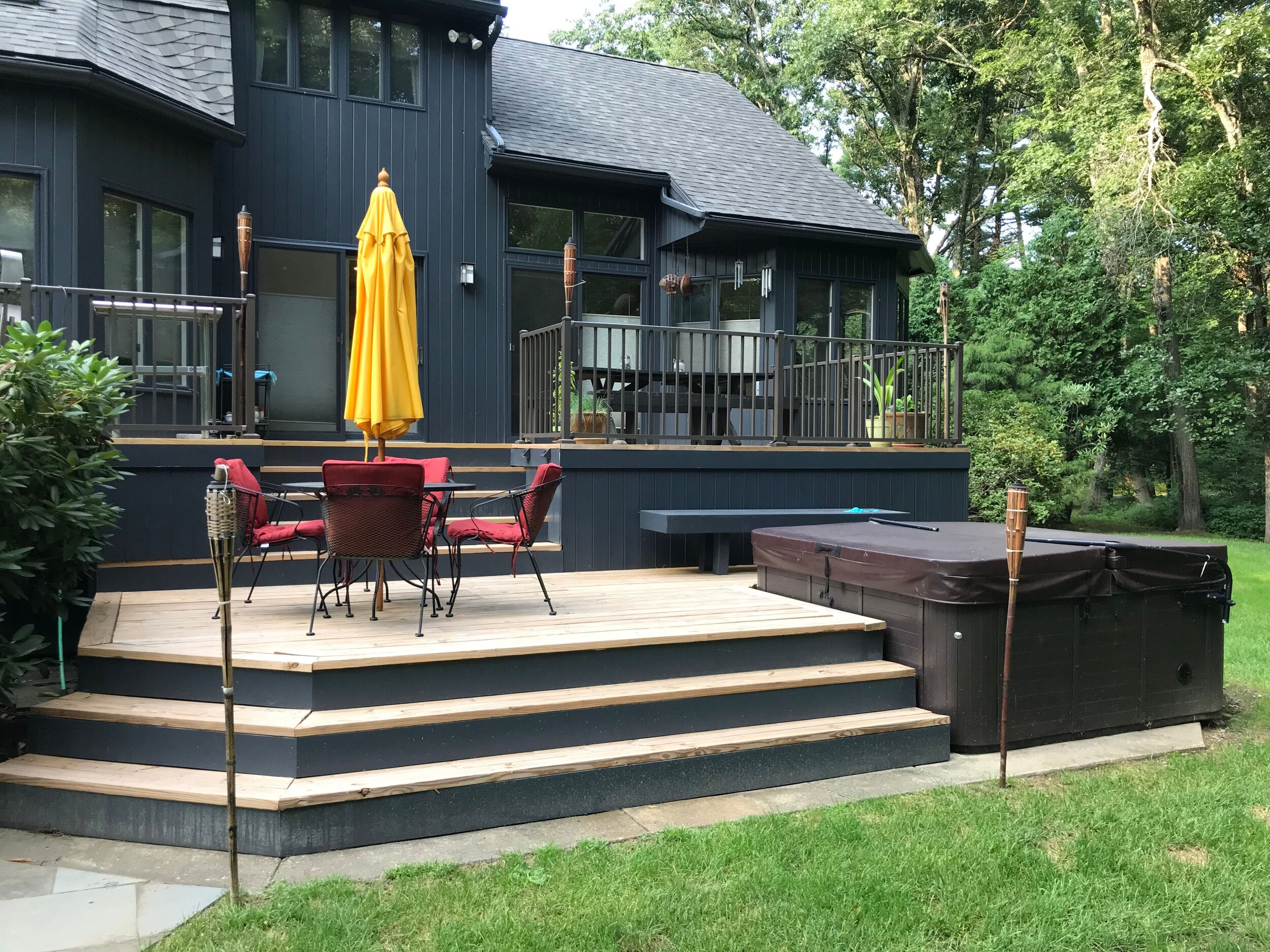Trex Decking: Raising Your Outside Experience with Every Step
Trex Decking: Raising Your Outside Experience with Every Step
Blog Article
Expert Tips on Picking the Right Deck Products for Your Home
Selecting the optimal deck materials for your home is a significant choice that requires cautious factor to consider. The option of materials not only affects the aesthetics however additionally the longevity and upkeep of your deck. With a wide variety of choices readily available in the marketplace, from classic timber decks to modern-day composite and PVC alternatives, making a notified choice is crucial. By understanding the crucial factors affecting this choice, you can ensure that your deck not just complements your home yet additionally stands the examination of time.
Variables to Consider Prior To Choosing
Prior to selecting deck materials for your home, it is crucial to carefully assess numerous essential aspects that will influence your decision. The first aspect to consider is the environment in which you stay. Various products hold up against differing weather condition conditions in a different way. For example, if you reside in a region with high moisture or constant rain, you may intend to select products like composite outdoor decking that are more resistant to moisture and mold and mildew. On the other hand, if you stay in a hot and completely dry climate, materials like redwood or cedar might be appropriate due to their natural resistance to decay and bugs.
On the other hand, composite outdoor decking needs very little upkeep, generally only requiring periodic cleansing to maintain its look. Recognizing your determination to spend time and effort into maintaining your deck is vital for making a choice that lines up with your way of living and choices.

Pros and Cons of Timber Decks
Thinking about the numerous variables that affect the choice of deck materials, it is important to evaluate the benefits and disadvantages of wood decks. Timber decks use a natural and typical look that numerous home owners like. They can be stained or painted to match the visual of your home and are relatively easy to work with for do it yourself projects. Additionally, timber is a sustainable source, making it an ecologically friendly choice.
However, wood decks require regular maintenance, such as staining or securing, to protect against rot, degeneration, and insect invasions. Timber decks have a tendency to have a much shorter life expectancy contrasted to other outdoor decking products like composite or PVC.
Discovering Composite Decking Options
When reviewing decking materials for your home, discovering composite alternatives provides a durable and low-maintenance choice to typical wood decks. Composite decking is a mix of timber fibers and recycled plastic, developed to resemble the look of timber while providing a range of advantages. One significant benefit of composite outdoor decking is its longevity; it is resistant to rot, bending, splintering, and insect damage, making it a resilient option for your outside area.
Along with its toughness, composite decking calls for very little maintenance contrasted to wood decks. You will not require to discolor, seal, or sand composite boards routinely, conserving you time and effort in the future - Trex Decking. Composite decking is likewise available in a variety of designs and colors, enabling you to personalize your deck to suit your aesthetic preferences
Furthermore, composite decking is eco-friendly as it is frequently made from recycled products, lowering the demand for new wood. While the first price of composite outdoor decking might be higher than timber, the lasting cost savings on maintenance and replacement make it an affordable choice for numerous homeowners looking for a eye-catching and reputable outdoor decking material.
Understanding PVC and Vinyl Decking
PVC and vinyl decking are modern-day options to standard timber decking products, providing distinct benefits for property owners seeking a sturdy and low-maintenance option for their outside areas. PVC, or polyvinyl chloride, outdoor decking is made from 100% synthetic materials, providing superb resistance to dampness, fading, and pest damages.
In a similar way, vinyl outdoor decking is also a synthetic material known for its resilience and low maintenance demands. Vinyl outdoor decking is normally made from PVC, offering similar advantages such as resistance to rot, mildew, and mold. It is additionally an economical option over time, as it does not require staining, securing, or paint like wood outdoor decking does. House owners can appreciate their outside areas without the worry of comprehensive upkeep with PVC and plastic outdoor decking alternatives.
Comparing Deck Material Prices
To make educated choices regarding decking materials, assessing and contrasting the costs of various choices is vital for homeowners wanting to spend carefully in their outside spaces. When contrasting deck product costs, factors such as initial expenditures, maintenance demands, and long life needs to be taken into consideration.

Compound decking, made from a blend of timber fibers and recycled plastics, tends to have a greater ahead of time price but reduced maintenance needs. This can cause lasting cost financial savings regardless of the preliminary investment.
PVC and plastic decking, while low-maintenance and durable, are among the costlier options. Their durability and marginal upkeep needs can make them economical choices in the long run.

Conclusion
In verdict, selecting the ideal deck materials for your home involves mindful factor to consider of aspects such as durability, upkeep, and expense. Wood decks use a traditional look but need regular upkeep, while composite outdoor decking supplies a low-maintenance option with a range of designs. PVC and vinyl outdoor decking are very easy and resilient to maintain but might come at a higher cost. Inevitably, evaluating the benefits and drawbacks of each product will assist you make an informed decision for your exterior home.
Taking into consideration the various aspects that affect the choice of deck materials, it is essential to evaluate the benefits and drawbacks of this article wood decks - Trex Decking. Timber decks have a tendency to have a much shorter life expectancy compared to various other outdoor decking products like composite or PVC
When evaluating decking materials for your home, checking other out composite alternatives provides a long lasting and low-maintenance option to typical wood decks.PVC and vinyl decking are modern options to standard wood decking materials, providing distinct advantages for home owners seeking a sturdy and low-maintenance alternative for their outdoor rooms. Wood decks provide a traditional appearance but require routine upkeep, while composite outdoor decking gives a low-maintenance alternative with a variety of designs.
Report this page